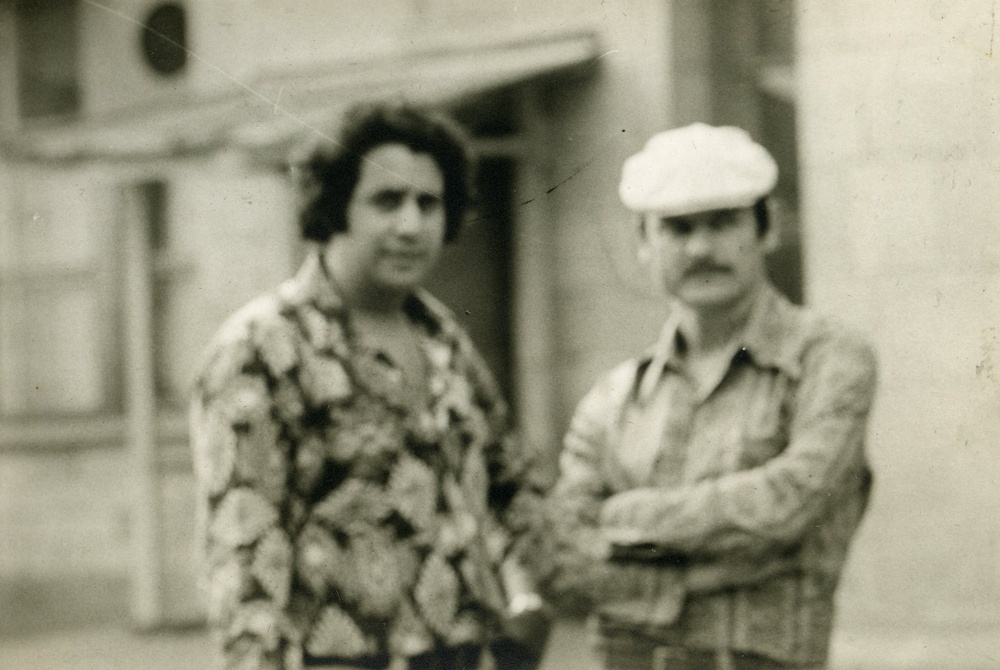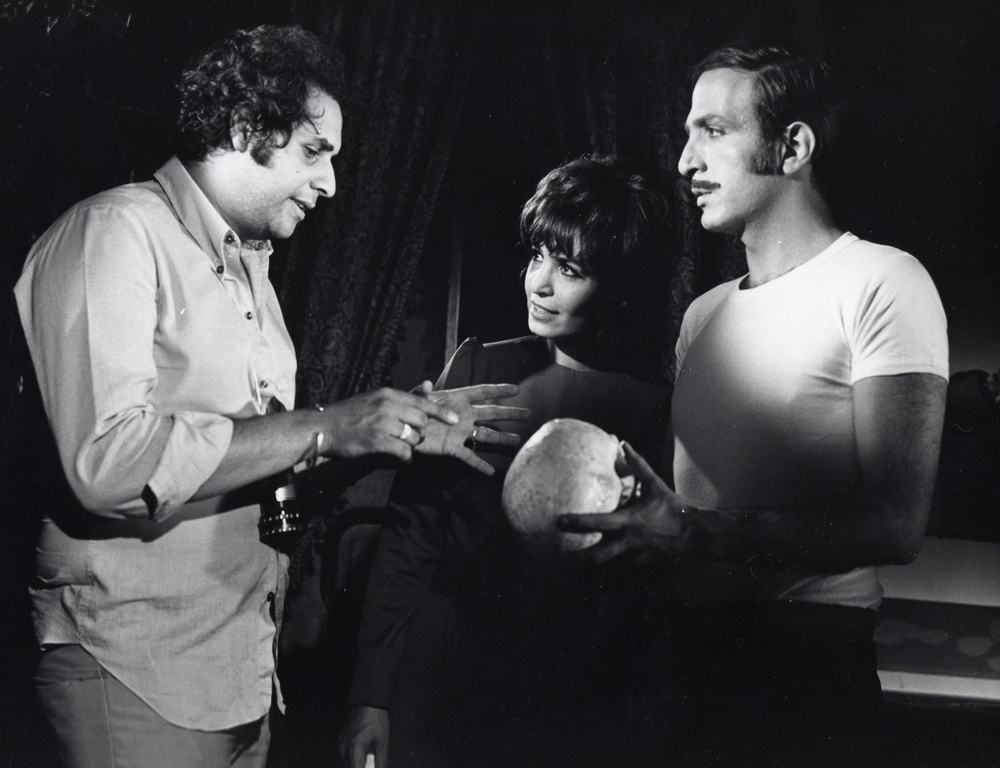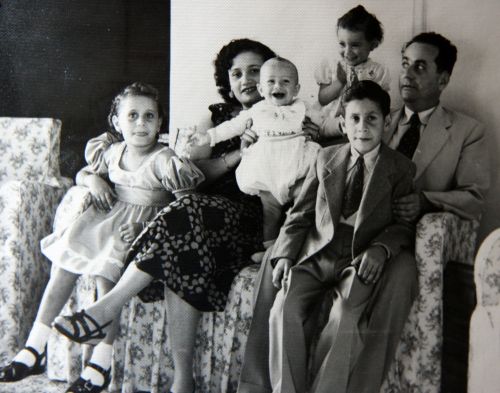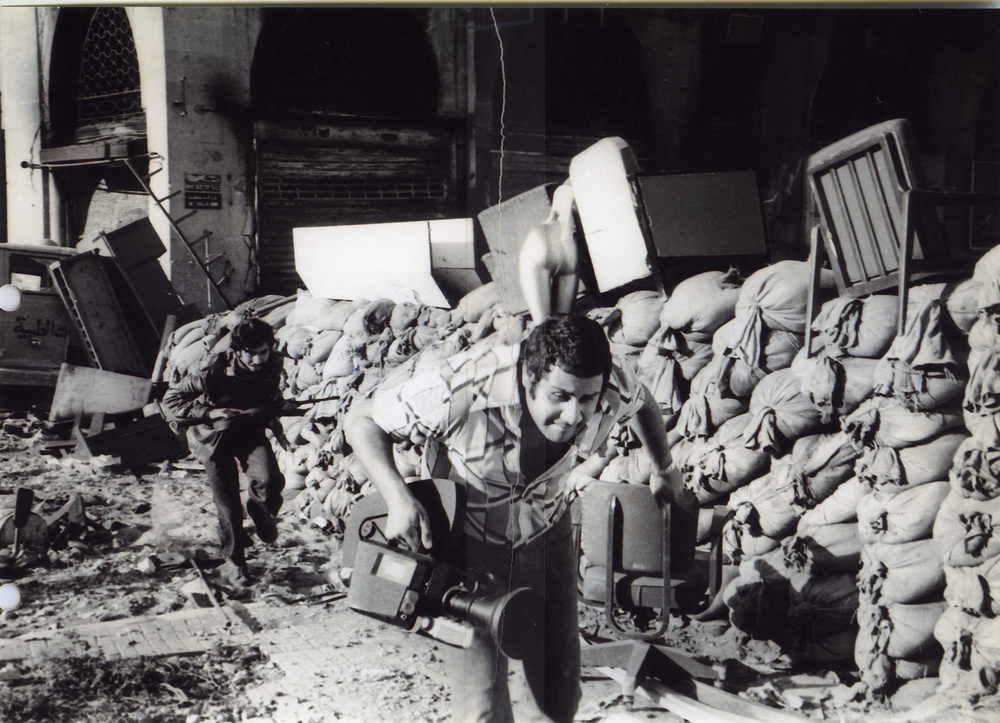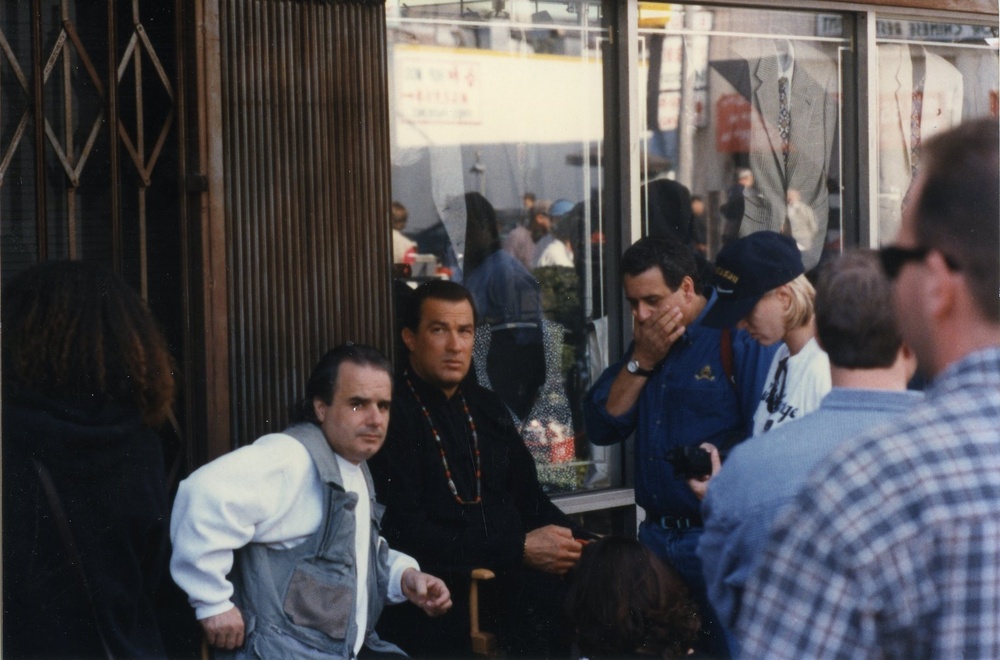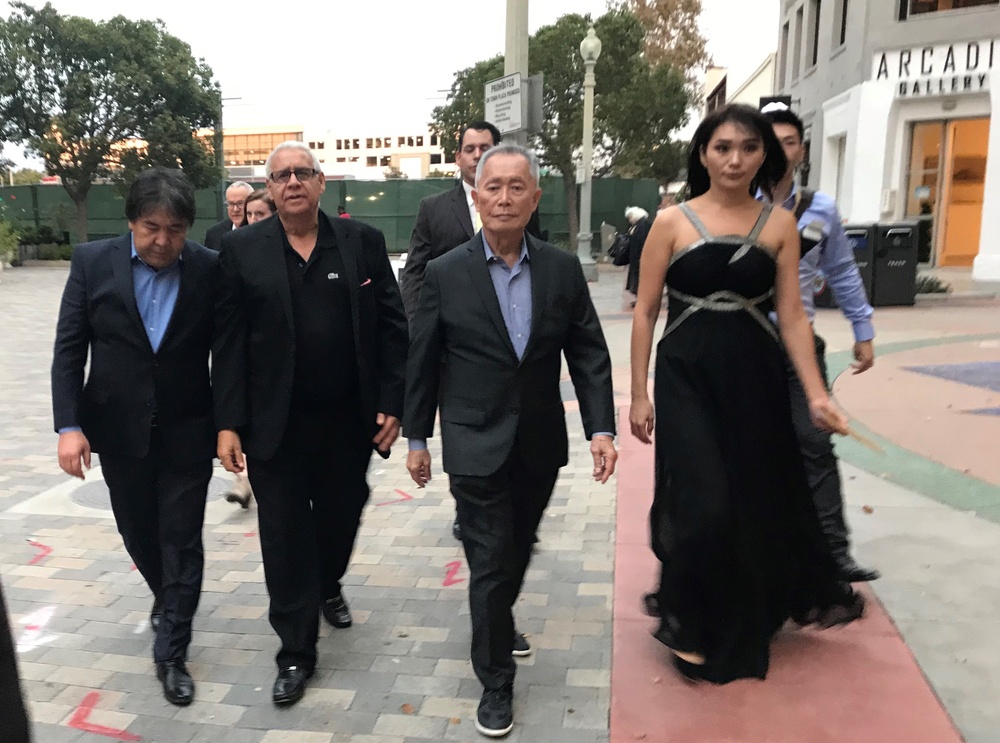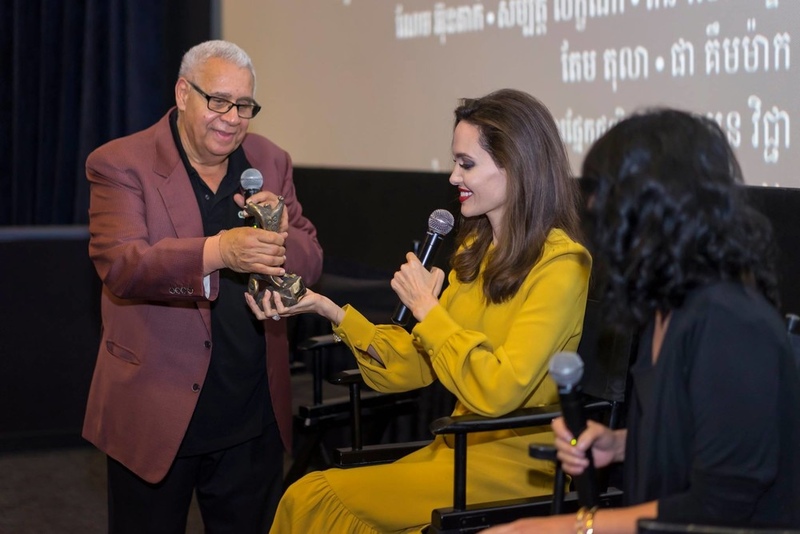
AKIPRESS.COM - The 4th Asian World Film Festival is to kick off in late October in Los Angeles, USA. The founder of the festival is the head of the Aitysh foundation, filmmaker, MP Sadyk Sher-Niyaz.
Director of the Festival Georges Chamchoum visited Kyrgyzstan this year as a guest of honor of the World Nomad Games.
Georges Chamchoum is an outstanding filmmaker, a respected cinematographer, one of the 100 most influential Lebanese in the world.
AKIpress took an interview with Georges Chamchoum.
- Please tell us about yourself, where you were born and how you came to cinematography?
- You can say I am a real citizen of the world: I was born in West Africa, in Niger and then we moved to Lebanon at the age of 4. Originally we are from Lebanon. I stayed in Lebanon until the age of 8 and then my parents took me to France for school, where I graduated. From France I went to Germany for 1 year and then I went to Wales, UK. From Wales I came back to Paris to study at the Academy of Cinema, Conservatoire du Cinema. I graduated in 1968. I was lucky to be an assistant trainee to Roman Polanski and Andrei Tarkovsky on the set. Polanski was shooting Repulsion (1965) in London. The first movie I directed was in 1970, it won an award at the Moscow film festival. I've been to the film industry for 50 years and 4 months.
- What was your impression to work with Tarkovsky?
- I met him in Moscow, he was shooting Solaris. I was there on the set watching him work. You could say I was an assistant trainee there, too. I did not work really but I was just watching him and I met him. I was lucky enough to know him personally. That was a great experience for me. Tarkovsky is very spiritual, deep, one of the most sophisticated persons I have ever met. And talking with him is like watching one of his movies, it takes time for you to digest what he is saying. He was very, very gentle person.
- What was the next in your career?
- I went back to Lebanon, because I felt an inclination to go back to Lebanon and work in the movie business in there. I encountered a lot of old filmmakers who saw me as a threat. I was a threat to them, a young film director (not a film director yet, because I just graduated) comes to Lebanon to start making movies. So they felt like it was a threat. To me, it was totally idiotic because all my life I believed in collaboration. I wanted to learn from them, to understand how their mind works, because I never really lived in Lebanon. Emotionally, I am more French than anything else. But it was very difficult. They were fighting me and would do anything to stop me from making movies. That was in 1968, I was 21.
- Why did they react that way? Was it only about you and all the young film directors?
- They felt it towards all the young film directors, though we were very few back then. Today we have a lot of filmmakers and I think Lebanon has the biggest number of female directors in the world. But in those days, I was one of the few and yes, they fought every one of us.
But the thin is, I am a people's person. I love people. I always believed that collaboration is the strength. It is my strength because I don't know everything, but I can learn a lot from you or Sadyk, and I can combine everything to create something big and that's what makes people's strength.
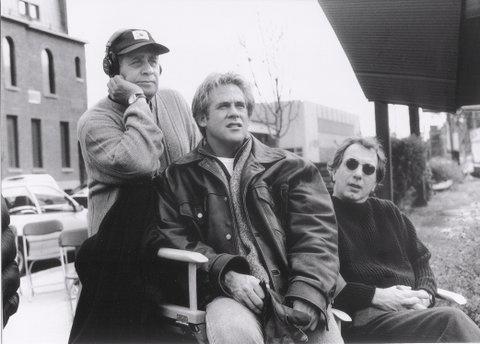
- Were you able to shoot a movie in Lebanon?
- Yes, I did in 1968, immediately after my graduation. I shot a movie in Lebanon with my friends, the movie was called Inside Out. It wasn't an easy movie because there was no dialogue, it was more about music and emotions. It was about the effects of drugs on people. In 1968 talking about drugs in Lebanon was a very touchy subject. And I was put in house arrest, they said I was doing bad publicity for my country, which was completely false because I did not condone drugs, I only showed the effect of drugs. The movie was never released, it was banned. It was only shown in cinema clubs and universities. I never thought it would go to big screens anyway. But the movie gained a reputation, that time critics called it one of the most poetic movies that comes from Middle East. It was a great thing for me of course.
It was a 65-minute author movie. When you are young, you don't think that there is an audience out there. At the beginning of my career I was making the movies mostly for me, not for everybody. This is how I started making movies.
- What happened after the arrest?
- I did not care. I was young and arrested for a movie for a week, which was really stupid. If I had to redo it over again I would not say I would not do the same. I would probably do it the same way. If I was wiser I would have done it another way. The arrest did not change me, I remained the same. It even pushed me to do more.
- Did you shoot more?
- Yes, after that I made my first feature movie SALAM... AFTER DEATH. It was a 100-minute movie. It was new in many ways in Lebanon. In Lebanon, the movies were shot in Egyptian in those days, we speak Lebanese Arabic, it's just simplified Arabic. Nobody there shot movies in Lebanese because no distributor would take the film in Lebanese, only Egyptian. But I did not want to do that. I shot the movie in Lebanese, hired the biggest Egyptian star, Samira Ahmed, and made her speak Lebanese. I was 23 and people thought I am crazy. But I would not accept that we Lebanese speak Egyptian, because we have our own language. So that's one thing.
Second thing, nobody ever heard that a naked woman was in the Arabic movie, never. Well, I did it. I shot scenes where a woman and a man were totally naked. I did it already in Inside Out because of the drugs. But now in Salam, the naked scenes became an issue. It never happened before in the Arabic movie.
What was also the new in this movie is that I took the whole crew up to the mountains near my village where I come from, and we lived there for a whole month and shot the movie there. Usually, all of the movies in Lebanon were shot in Beirut or around Beirut. But I wanted to do different because it's a historic film, a period piece about the Ottoman Empire in Lebanon. We were ruled by the Ottoman Empire for nearly 600 years. It's a period piece.
In Lebanon, we were all raised in three languages – French, Arabic, English. We all speak three languages since we were kids. Like you here Kyrgyz and Russian. And the funny thing here is that I identify myself as French speaking. And what's crazy is that in those days in the 50s, if you ask a kid where they belong they would say “my mother is France.” And it's crazy. It's not France it's Lebanon. But this is how I was raised. Lebanese were very cosmopolitan society.
So now that the movie is finished, no distributor want to take it, not a single one of them. And most of the distributors were my friends. But dub the movie in Egyptian, and they will buy it. And I flatly said NO. I preferred the movie to stay in the shelf than doing it in Egyptian, I would never do that.
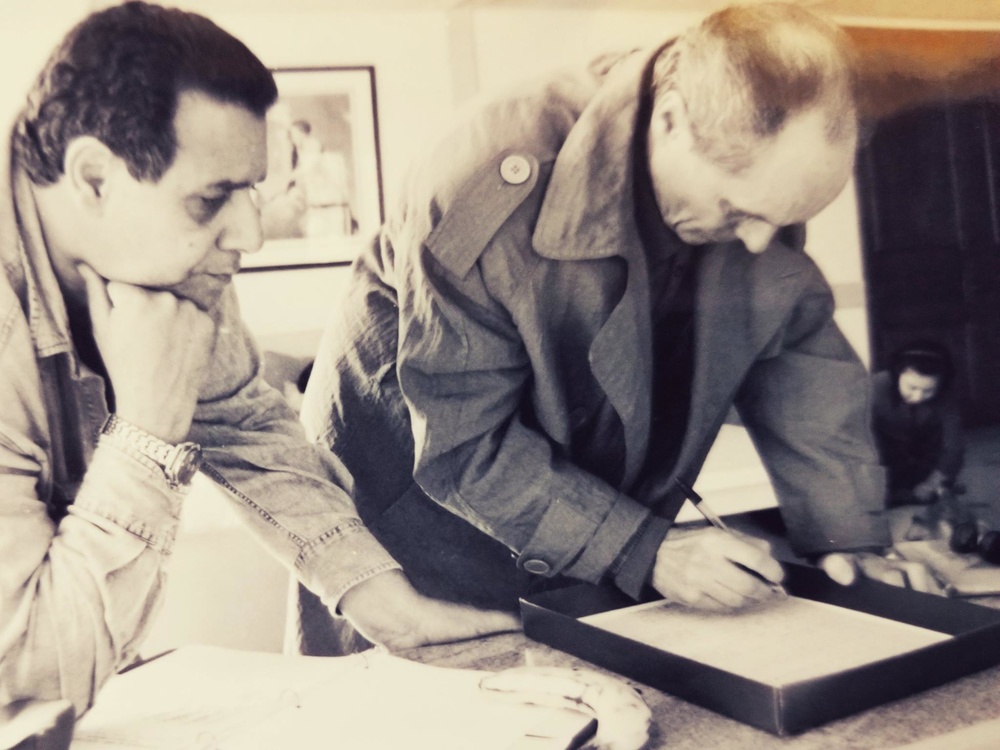
- Did your family support you?
- Yes. Yes, they supported me, sometimes yes, sometimes no. They said I was a black sheep in the family. They were all business people. But they never stopped me. My father and my mother never stopped me in achieving my dreams.
- What's next with the film?
- It went to several festivals. One of them was Moscow film festival where I won an award for the best achievement in cinematography, which was fantastic for us that for the first time Lebanon has a prize. It went to other festivals and it was mostly in festival circuit until 1999 or 2000, I think. The UNESCO awarded me and then screened the movie in a theater in Lebanon for the first time. It was a great honor.
- How did Lebanese people feel about it?
- They liked it. It was not very ambitious movie, it was a simple movie, thriller combined with some satirical comedy. I don't want to go into details about this because of political reasons. I have good ties with Turkey and I don't want to talk about this too much. But yeah, it was well-accepted. I am a director of a film festival, I can't have people against me.
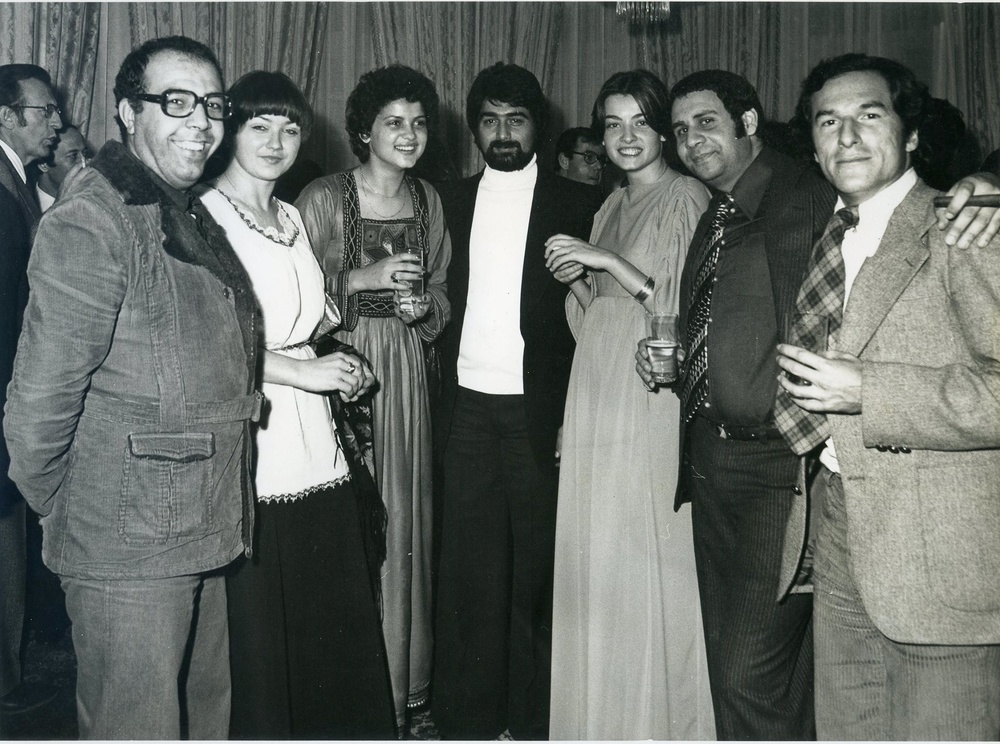
- Each of your movies, and you had two back then, became controversial, right?
- All my life was controversial. Even in my personal life, I am controversial. I am such a person, you see me and you have me, I am here. It's good if you like me, if you don't like me, I don't care. Life is too short, I just move on. This is me and this is how I am.
- Is it an important feature for a director?
- Each person has its own character. I think people like me, in general, because I am a nice guy, I am very considered and polite. But they also have to accept other side: I have a very twisted sense of humor, very sarcastic. Either you accept me the way I am or I'm sorry. You accept me, I accept you. You have to be tolerant. Tolerance is the key word in my life. I am a very tolerant person. I accept everyone as long as you don't hurt me. Did it affect my work? Of course.
- Do you write screens?
- No, I don't write at all. I am old-fashioned film director. They give me a screenplay, and I make the movie. But in my case, I give an idea. I have a general idea, a story in my head. I put it on a page or two and give it to a screenwriter and the screenwriter writes it for me.
Author of Salam was one of the most famous authors in Lebanon. The others came through friendship. I believe in friendship. I have a pool of friends who are extremely talented. Again, it goes back to collaboration.
- Do you promote your movies?
- No, I don't, a distributor takes care about it. I do not promote.
- What's next?
- The next step is very painful step. I created a pool of filmmakers. We created a intellectual (I hate this word, by the way) group and we started a magazine that I founded. A weekly film magazine in French and English. Imagine, 120 pages every week. French was not a translation from Arabic, it was completely independent magazine. And we tried to go into TV and make series. It was a real battle. They would not let us in. It was like a mafia and we could not get into it.
- Seems like such mafias exist everywhere.
- Of course. Even today.
- And how you then do things?
- You just go. It's simple: if you just sit at home, nothing is going to happen. So you fight all your life. Most of my life I felt myself like a Don Quixote fighting a windmill. Then the war broke out in 1975 in Lebanon. We immediately took cameras and started filming. The first day on April 13, 1975, we filmed the Bus Massacre, from where the war started. I had a team of 7 people, they were from extreme right to the extreme left like Trotsky. I had 7 people and they represented each tendency. I wanted it on purpose. The movie that I wanted to do and I did was called Lebanon Why? I did not want to take sides in the movie. I did not want to take the Palestinian side or to take the side of the Christians. I did not want to take the left or right side. I just wanted to see why this war is happening. Why brothers are killing each other? I wanted to be like a surgeon. The surgeon cuts the body and sees where cancer is. That's what I wanted to be. No sides.
It took me 4 years to shoot the movie. I had more than 50 hours of footage. I was the only person who went – there were Christians and leftists (Muslims and Palestinians) – to all the regions and nobody could stop me. I went under the bombs, under the shooting, I was shot many times. I had a fantastic team because they followed me everywhere. I really wanted to be fair,but unfortunately a lot of people would say that's not fair because you're still taking a side. In my mind, I was taking the side of a human. I was kidnapped three times and luckily I could get out tree times. Once I was even kidnapped in Athens, Greece. My family said I am a traitor to my family and I am a traitor to the Christians because I did this movie. The leftists hated me because they said I worked for Israel. The rightists hated me because they said I worked for Palestine. I was attacked by both of the sides. Each faction has kidnapped me once. It's a very interesting story because when everybody attacks you know that you have achieved something. You know that you made people uncomfortable through telling the truth, people don't want to hear the truth. I think this is the best movie that I've made and I'm really proud of it. It went to many festivals and I won many awards. It's a feature documentary, by the way. I did a 105-minutes film out of 50 minutes of footage. I did not care about criticism, I felt really good. Because in knew I achieved exactly what I wanted to achieve. There are people who criticized me for this movie but I really don't care. It's their opinion and it's fine.
It is considered one of the best war documentaries in the history of the cinema, which is a great achievement for me.
- Where did your family lived in that time?
- In Africa.
- You were kidnapped, what did feel? What did you do?
- They wanted to kill me, I was scared as hell. I said to them, just kill me and finish it all. But I was lucky because I knew a lot of extremely powerful people in politics and they were the ones who helped me to take me out when I was arrested. I had friends from head of state to simple people.
The way I shot the film was also interesting because we came to Lebanon to shoot and go back to Athens to rest for 10 days and go back to Lebanon to shoot because it was very intense. I've been to every battle. Nobody did what I deed. Nobody would go to the middle battle. When I think about it I think how I did it. But when you shoot a movie, you just forget about everything.
So then the movie was submitted to the Academy Award by the UK, because the production was half-Lebanese and half-British. It went to the Oscars in 1980. But of course I did not win anything, because it was very controversial. Nobody accepted it and it created a lot problems. In Montreal, for example, when it was screened at the festival, I was stopped because the people were fighting, the left against the right side of the theater. There were like 15 police cars, they locked the whole street. In the 1980s, this movie made a lot of noise. But at the same time, I was happy, because I achieved what I wanted.
- You wanted everyone to fight each other?
- I said I am a very controversial person. Yes. In a way that I wanted the people to aware of what was going on or to fight together. Let them fight. It's ridiculous, but that's what the human behavior is. People have something sometimes that stops them seeing the truth, the reality. That's why even my family warned me after this movie “are you crazy? How can you shoot a movie against your own people, against Christians?” and I said “I'm sorry, just a Christian here. I am a human being.
So anyway, this movie when to 17 festivals. It was distributed in many countries. After that, for 5 years, we call it crossing out the desert, there was nothing. I moved to Paris to work and I come to a lot of racism there against me. A Lebanese Arab coming to France to work in movie business. People again started fighting me until a big star Jean Luc Lahaye stepped in and helped me. He asked me to shoot a music video called Jamila. I made my first music video that won an equivalent to Oscar called Emmy, but in France. And from that time, I started making music videos until 1990, when I moved to America. I did not like France or anywhere in Europe. I went to a different path, it was commercial. I did movies with Steven Seagal.
In the meantime, I admitted something that in 1982, I started working in festivals. When I was in Paris we founded Paris film festival, Horror and Science Fiction Film Festival, which was the number one film festival in the world. I worked in couple of other film festivals either started them or worked for them until Monaco film festival, I was executive director.
In that film festival, I discovered Yakutia through a film By the Will of Genghis Khan, Directed by Andrei Borissov then Minister of Culture. That was the first time we showed a Yakutian movie in the west. And I fell in love with it. I did a special program of Yakutia in cinema at the festival. Borisov invited me to Yakutia to help with the Yakutia International Film Festival, which I did. I fell in love with the country. To this day, this country has my heart. It's so magical, such a beautiful place, beautiful people.
Then I had a festival in Lebanon, this year is the 12th year, NDU International Film Festival and then the Asian World Film Festival.
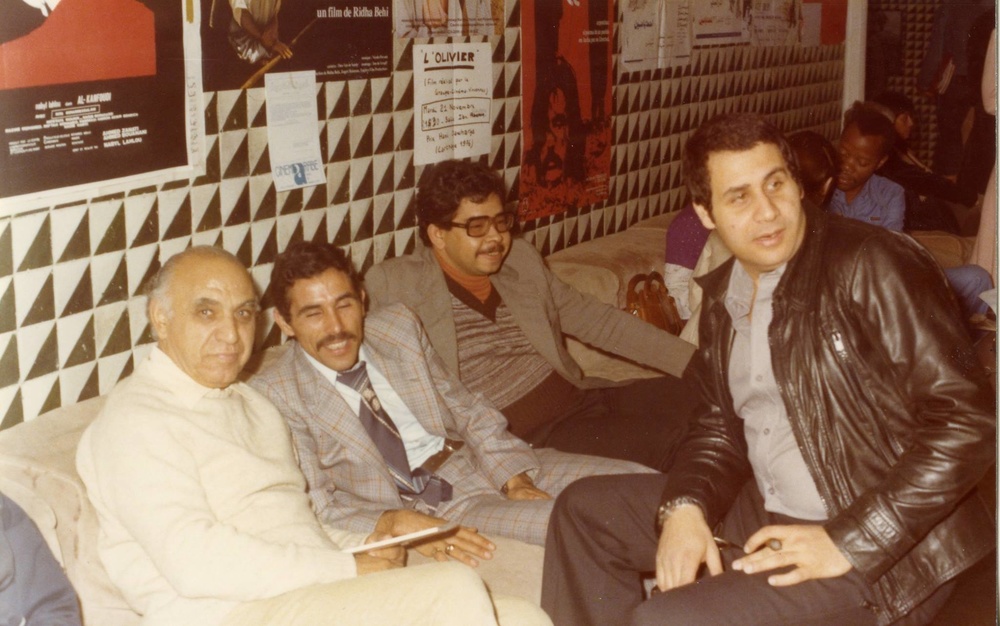
- Do you miss the shooting process?
- Of course I miss it. Now this festival is getting so big it needs my attention for at least another year. I want to shoot a film in Yakutia, but I've been pushing it for the past 3 years now because I don't have any time. I have three film festival: Yakutskiy, Lebanon, and this one. But this one takes the most of my time.
- What makes this festival different from others? Does it have something more than just being an Asian? How did you become a Director?
- The history of the Asian World Film Festival was very simple. Sadyk had a film called Kurmanjan Datka that went to the Oscars. I took it to Yakutsk, that's where I discovered the movie. I did not know him and contacted him. My goddaughter Dinara Koikelova is from Bishkek and I asked her to translate it to him to say that I want his movie. And that's how it started. I took this movie to Yakutsk. When it went to the Oscars, he asked me to help with promotion, which I did in my limited means. I told him not to expect much because since 1947, that's 73 years, only seven Asian movies won the Oscars. That's crazy, only 7 Asian movies won Oscars in 73 years.
So when Sadyk took Kurmanjan Datka, which is an amazing movie, to the Oscars, I told him not to have his expectations too high, because he really thought he could get at least nominated. So when the list came out, and he was not there, of course, he was devastated. But I did warn him. Sometimes human beings still hope, there's always hope.
Sadyk then suggested to start working on distribution, but it was very difficult. We would just lose our money and get nothing. And then he said 'what about festivals? You do festivals” and I said “fantastic idea.”
That's how he came up with the idea of creation of the Asian World Film Festival, all Asian movie festival. The festival has 50+ Asian countries participating. Out of those 50, there were 36 countries that submitted their works to the Oscars.
- How did you meet your goddaughter from Bishkek?
- I met her in the premier of one of my movies. We became very close. And she said I don't have a godfather, do you want to be my godfather? And I said why not. I've never been to Kyrgyzstan before meeting my goddaughter, but I knew about this country. I am open to the world, and I feel attached to Asia. My wife is from Korea. I have a very emotional attachment to Asia, Central Asia and Yakutia.
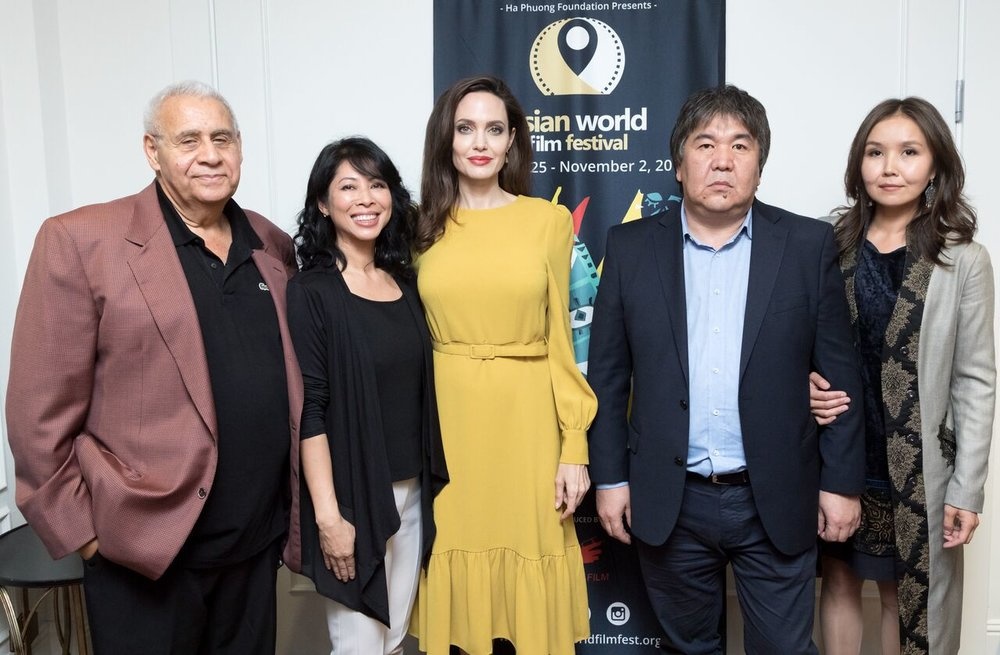
- Are the people in the US interested in this festival?
- Very much. It's amazing that in three years, this festival has become a monster, because it was something that was lacking in Hollywood. Plus even the Academy members who did not even look at those movies said “thanks god, we have your festival so we can come and see those movies.” and also being a partner with the Golden Globe has helped a lot. If you see our board members, you see the biggest names from Hollywood in our board. We turned to this prestigious world festival in less than 3 years. We won 1 Oscar (Iran) and several nominations – Russia and Lebanon last year and Jordan. In 3 years, we have 1 win and 3 nominations. This is miracle when you know that the Academy members love their comfort zone. This is why we created this film festival. The vision of Sadyk Sher Niyaz let us to have this festival.
- Were those films that got Oscar nomination premiered in your festival?
- No, they had premiers in various places, like Toronto. We're not interested in premiere, we're interested in taking an Oscar and Golden Globe award. That's our job and that's what makes us unique. No other film festival does that. That's why it is held in October, in the middle of our season, so we helped promote those movies. If you want the movie to be well-promoted and want the Academy Awards to hear about this movie, you have to spend at least $50,000 on promotion. A guy who comes from Afghanistan or Nepal with a movie that does not cost $50,000... how do you want the poor filmmaker to spend $50,000 on marketing? So that's what we do for them. We give them the marketing we give them the screening. And the Academy members then here about this movie and open their eyes.
- What do you expect from the festival this year?
- Well, we just started getting the movies, Oscar movies started coming from the end of August. We have already Palestine, Korea, now the movies are coming in. I also created something called 'signature screening', it's great movies from Asia, which were not selected by the Oscar committee but are still great. We have Kyrgyz film days, Korean film days, China film days & Asian American Film Days - you know the Asian Americans in Entertainment are becoming a power to count on – look at what happened with the Movie Crazy Rich Asians, released actually this week in Bishkek – 3 weeks in Row number one at the Box Office – that is historic --- and I would like to believe that AWFF has a little piece in the success of the movie. Lisa Lu one of the stars is a AWFF Board Member. Adele Lim, the Screenwriter is also on our Board. We are very proud of our Asian Heritage.
We showed six films last year. This program is also a discovery for the audience in Hollywood, but the biggest discovery that we did was a film from Yakutia. I opened up a completely different world that Hollywood has never heard of – Yakutia, Tuva, Buryatia. They thought Yakutia was sort of a medicine, they did not even know what it was. We really are doing something great.
- Your impressions about the Kyrgyz cinematography?
- I loved it. Every movie that I've seen lately – Centaur, Father's Will, Sayakbai (as a matter of fact we are doing this year a Tribute to Chinghiz Aitmatov, one of my favorite authors, and we will be creating an award called the Chingiz Aitmatov Award of Excellence, that we will give every year to one Celebrity from the Cultural or Entertainment world --- this really thrills me) – there is a great cinema in Kyrgyzstan. Definitely there are a lot of talents, it's an emerging cinema. The west must discover it. My dream is the Asian World Film Festival to become a stepping stone to discover the countries, habits, the way of life, culture, that's what I want. I hope in 2-3 years, we will do music, shows, and a lot of other things than just a festival.

